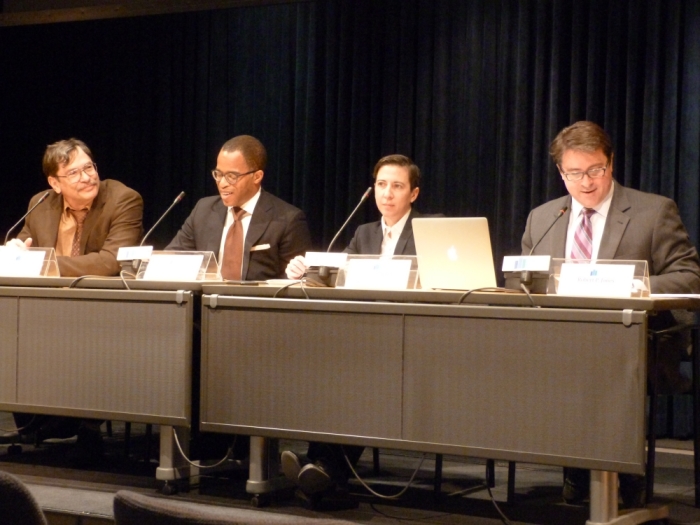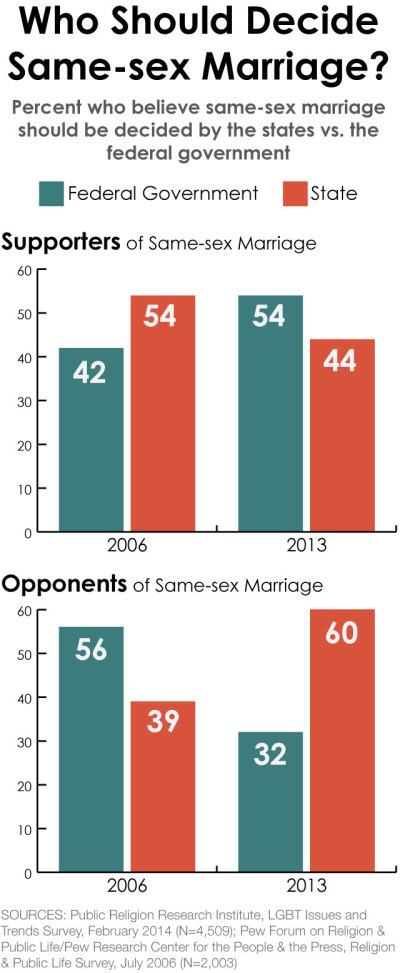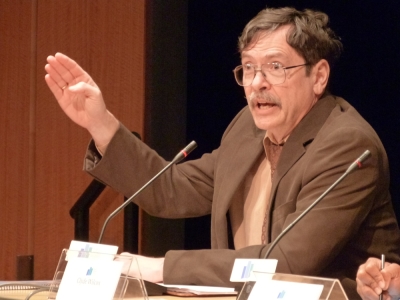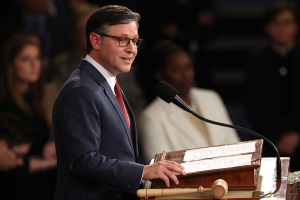In a Flip of Position, Same-Sex Marriage Supporters Now Want Federal Gov't to Decide; Opponents Prefer States


WASHINGTON — A majority of same-sex marriage supporters now want the federal government to decide whether or not to redefine marriage to include same-sex couples for all states while opponents of SSM would prefer to leave the issue to each state. This is the opposite of where each side of the debate stood seven years ago, according to research conducted by the Public Religion Research Institute.
Fifty-four percent of SSM supporters now say the federal government should decide the issue of SSM, compared to only 42 percent who said the same in 2006. Forty-four percent of SSM supporters want the issue decided by each state today, compared to 54 percent who wanted states to decide the issue in 2006.
SSM opponents, on the other hand, flipped in the opposite direction. In 2006, 56 percent wanted the issue decided at the federal level, while only 39 percent wanted states to decide. Today, 60 percent of SSM opponents want states to decide whether to allow SSM and only 32 percent would prefer a federal policy on SSM.

This inconsistency is not unusual, Clyde Wilcox, professor of government at Georgetown University, explained at a Wednesday panel discussion in Washington, D.C., introducing the report by PRRI, a liberal, nonpartisan research organization that focuses on issues related to religion and public life.
"This is not the only example where the public is inconsistent," Wilcox said. "If your side can win at the national level you like it better and if your side can win at the state level you like it better."
The change in positions on the issue indicates, though, how rapidly public opinion has changed on the issue of SSM, Wilcox added.
"Think about how the debate has changed from 2005 to today," he said. "In 2005, the debate was, how can we stop a few progressive states from allowing [same-sex] marriage. So the assumption would be if we had a national law it would be 'no' [to SSM]. Today, progressives are saying, 'boy, we've got majorities in an awful lot of states, the Supreme Court could just take care of this forever. Mississippi is not going to pass a law for a long long time.' So now [SSM supporters are] thinking the national government could say 'yes.'"
Jonathan Capehart, an opinion writer for The Washington Post and an MSNBC contributor, added that he has "long been a proponent of having the courts take care of this."
"As a descendent of the Civil Rights generation," he said, "when the courts had to come in and make states act right, I'm all for making the states act right by the Supreme Court [on] the issue of marriage equality. What we're seeing now is a two-pronged fight that's happening. ... At the state level and at the federal level, what you're seeing is a really rapid advancing of marriage equality."
The report's recent poll of 4,509 adults was conducted Nov. 12 through Dec. 18. The margin of error for the full sample is 1.7 percentage points.





























